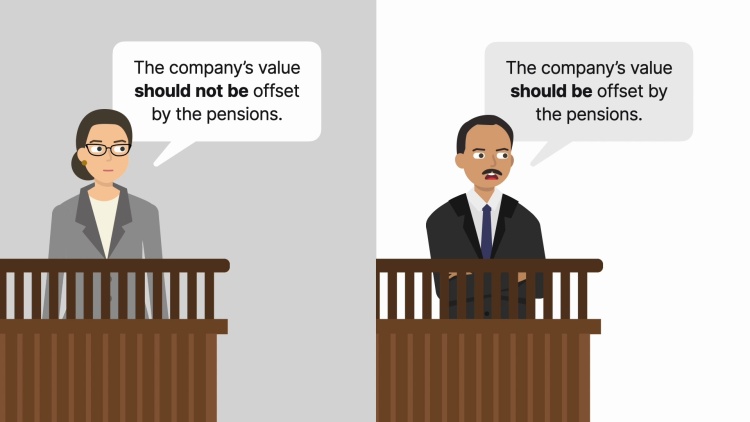Crider v. Crider
Indiana Court of Appeals
15 N.E.2d 1042 (2014)

- Written by Sean Carroll, JD
Facts
Christina Crider (plaintiff) and Jeff Crider (defendant) were married. Jeff’s net worth was over $11,000,000. Jeff owned 42.25 percent of the shares of Crider & Crider, Inc. (CCI), a closely held corporation. The majority of Jeff’s shares were non-voting. Jeff also owned interests in several limited liability companies (LLCs). Christina filed for divorce. There was conflicting testimony as to the valuation of certain CCI equipment. Christina’s expert valued the equipment at $20,100,000. Jeff’s expert valued the equipment at approximately $10,000,000. For purposes of distribution, the trial court valued the equipment at $11,000,000. The trial court then divided the marital assets evenly, awarding each spouse $5,510,930. However, most of the marital assets were not liquid. Consequently, the trial court ordered Jeff to make an equalization payment to Christina of $4,752,066. The trial court awarded Christina any attorney fees that she might incur in attempting to collect the equalization payment, as well as any interest that accrued after 90 days of nonpayment. Additionally, the trial court ordered that if Jeff failed to pay within 180 days, Christina would automatically be vested with full ownership and control of half of Jeff’s stock in CCI and membership interests in the LLCs until Jeff paid. Jeff did not pay within 180 days. The trial court enforced the initial order. Jeff appealed.
Rule of Law
Issue
Holding and Reasoning (Barnes, J.)
What to do next…
Here's why 907,000 law students have relied on our case briefs:
- Written by law professors and practitioners, not other law students. 47,100 briefs, keyed to 996 casebooks. Top-notch customer support.
- The right amount of information, includes the facts, issues, rule of law, holding and reasoning, and any concurrences and dissents.
- Access in your classes, works on your mobile and tablet. Massive library of related video lessons and high quality multiple-choice questions.
- Easy to use, uniform format for every case brief. Written in plain English, not in legalese. Our briefs summarize and simplify; they don’t just repeat the court’s language.





